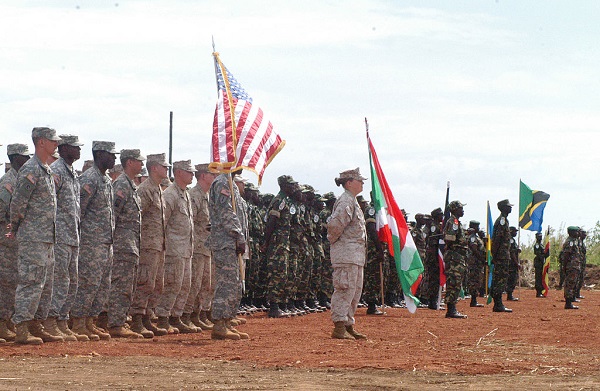Rise in Terrorism in Africa
March 2, 2019 | Expert Insights

Hundreds of United States commandos and other forces are leaving West Africa — despite an onslaught of attacks from an increasingly deadly matrix of Islamist fighters.
Background
Terrorism is, in the broadest sense, the use of intentionally indiscriminate violence as a means to create terror among masses of people; or fear to achieve a religious or political aim. It is used in this regard primarily to refer to violence during peacetime or in the war against non-combatants. The increased use of suicide attacks from the 1980s onwards was typified by the September 11 attacks in New York and at the Pentagon in 2001.
The American military has a relatively light footprint across Africa, relying on European and African partners to carry out most counterterrorism missions from the Sahel to Somalia, with the Pentagon providing air power when needed. The United States has already conducted 23 airstrikes this year against Shabab targets in Somalia, compared with 47 all of 2018.
About 6,000 United States troops and 1,000 Defense Department civilians or contractors work throughout Africa, mainly training and conducting exercises with local forces.
Analysis
The withdrawal of US troops from West Africa has unnerved African commanders in Burkina Faso and neighbouring nations in the Sahel, a vast sub-Saharan scrubland increasingly racked by Islamist bombings, massacres, kidnappings and attacks on hotels frequented by Westerners. It is a region in which most Americans were unaware of United States military involvement until four Army soldiers were killed in a deadly 2017 ambush in Niger by Islamic State fighters.
What is emerging, critics said, is a glimpse of what happens when American troops, especially Special Operations forces, pull back before insurgents are effectively subdued, leaving local or allied forces to fend off the Islamic State, Al Qaeda or their offshoots.
“It’s a real problem,” Col. Maj. Moussa Salaou Barmou, commander of Niger’s Special Operations forces, said of the drawdown and the closing of seven of eight American elite counterterrorism units operating in Africa.
Under the Trump administration’s military strategy, the Pentagon has pivoted from focusing on counterterrorism operations to potential threats from China and Russia. In December, President Trump ordered the withdrawal of all 2,000 American troops from Syria, although he since has softened it to allow at least 400 remains. A new Pentagon plan also would pull all 14,000 American troops from Afghanistan over the next five years — and as many as 7,000 in coming months — as part of continuing peace talks with the Taliban.
The American military is scaling back its commandos in Africa by about 25 per cent, mainly in the continent’s west. At the same time, insurgents are attacking northern Burkina Faso and pushing south along the border with Niger toward areas previously untouched by extremist violence, including the Ivory Coast, Benin, Togo and Ghana, where the Pentagon has a logistics hub.
In one sign of the growing fear, a school in the Burkina Faso village of Bargo recently built a concrete wall around its buildings for greater protection. Just last month, two boys were kidnapped by extremists while they prayed at the nearby mosque.
Colonel Major Barmou trained at Fort Benning, Ga., and the National Defense University in Washington. His comments — which were echoed by other African officers concerned about Washington’s commitment to fighting violent extremism — came during a counterterrorism exercise in Burkina Faso last week that drew 2,000 military personnel from more than 30 African and Western countries.
The military’s Africa Command plans to cut 10 per cent of that personnel by January 2022, including about 300 Special Operations forces from the roughly 1,200 commandos who were deployed across the continent last year.
American commanders said the changes reflected the progress made by the African troops and denied that the United States was backing away from its commitment to the region.
Assessment
Our assessment is that the gradual withdrawal of US troops will leave a power vacuum which will likely be filed by Russian and Chinese defence contractors operating in the region. We believe that the US troop withdrawal is sending signals that the US President wants to keep his electoral promise of bringing home his soldiers. We feel that will undermine fragile democracies in West Africa and leave them at the mercy of violent non-state actors.








Comments